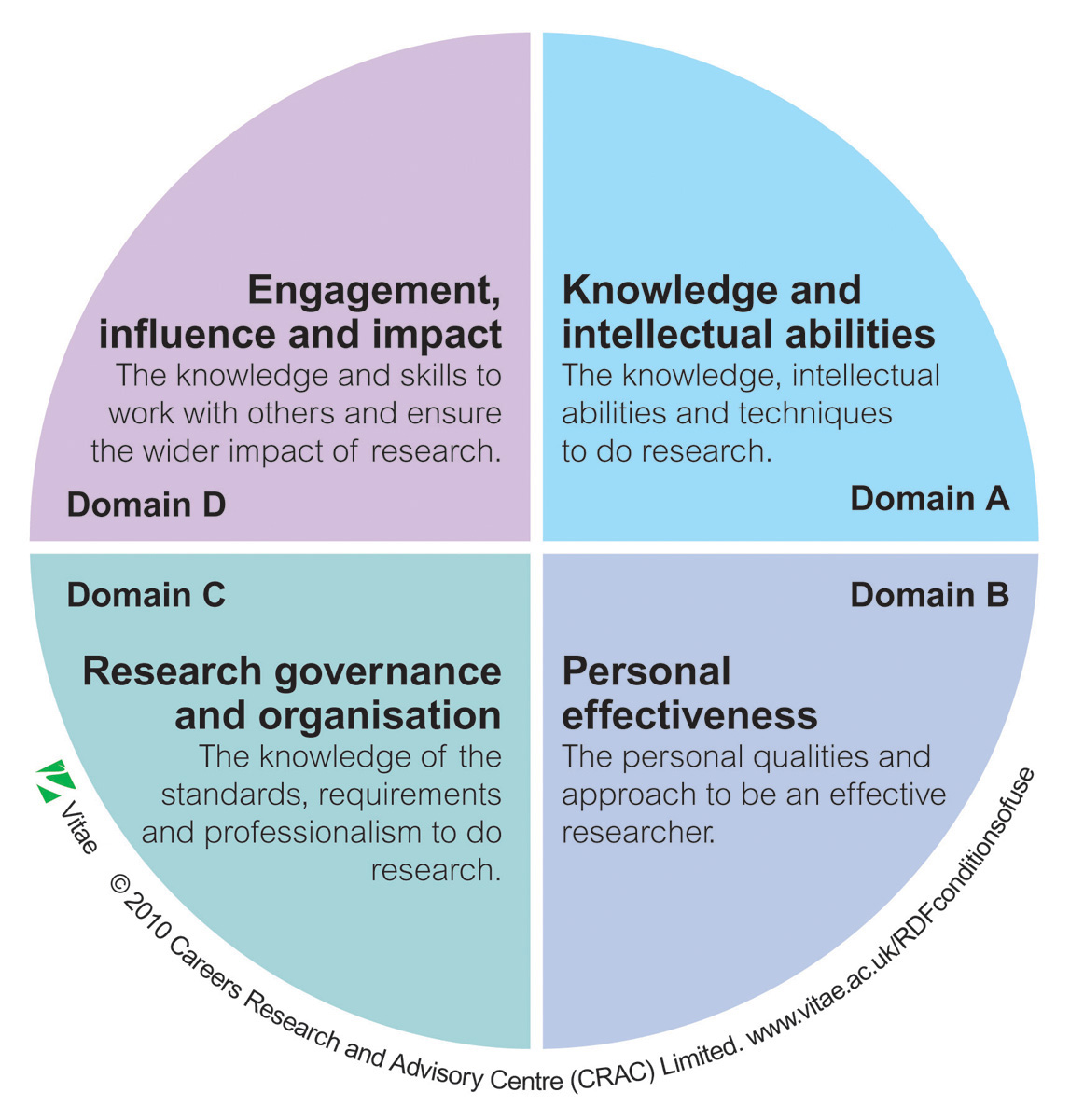Training & Skills Development
Developing technical and transferable skills can be hugely beneficial for your current position as well as your future career path. There are many useful resources and training courses available at the University and beyond, to develop these skills.

-
Engaging with training and skills development during a research degree or career should be considered a requirement and is not optional.
-
Training includes making sure you stay up to date with latest developments in methods and tools you use for your work.
-
Training and development should be continuous during a project or degree. It may help to regularly set time aside to engage in training, to browse different sources available to you, and to evaluate your needs.
-
Determine which skills are needed for different stages of your research project: e.g., technical skills (e.g., laboratory skills, coding languages), data analysis and statistics, dissemination of findings (writing, public speaking), leadership skills, project management, teaching.
-
Identify and participate in regular training opportunities that will benefit you and help you reach these goals. This could consist of IAD courses, university-wide courses, courses available publicly, paid courses (which may be reimbursable if approved by your supervisor), skills bootcamps.
- IAD courses and events for postgraduate students
- IAD courses and events for research staff
- Information skills courses
- Sites for service subscriptions by the University or your department (e.g. LinkedIn Learning)
- Edinburgh Clinical Research Facility - courses and events (e.g. good practice)
- Vitae - Research Development Framework